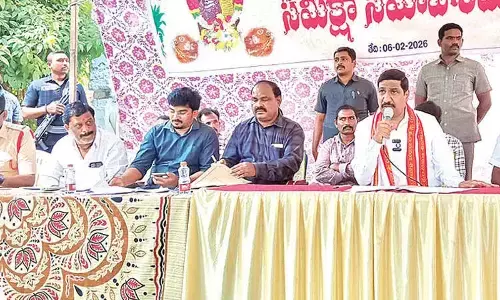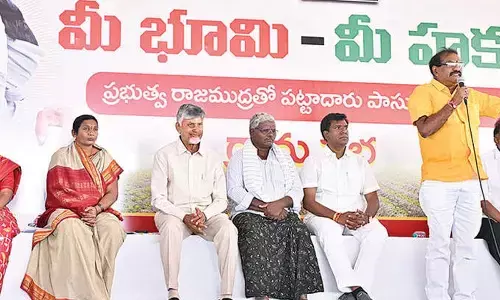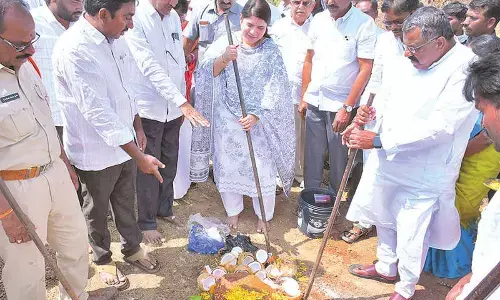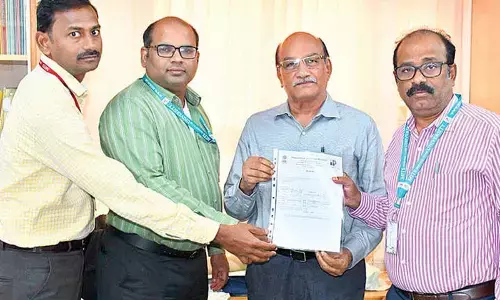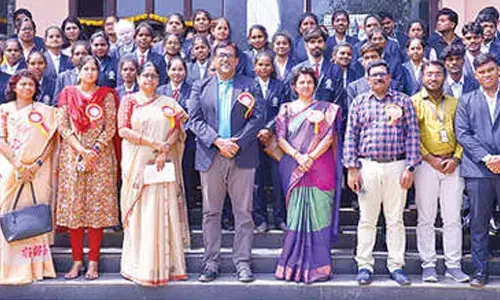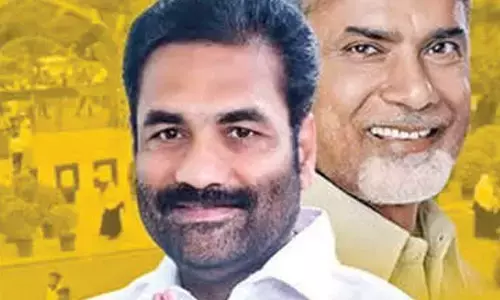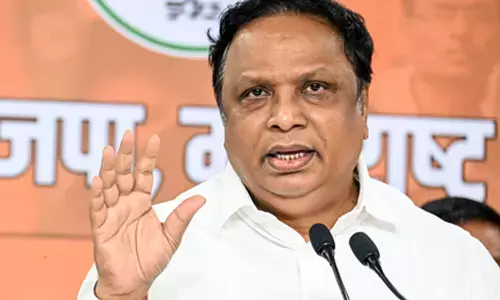After 6 decades of Independence Tirmali people get a postal address
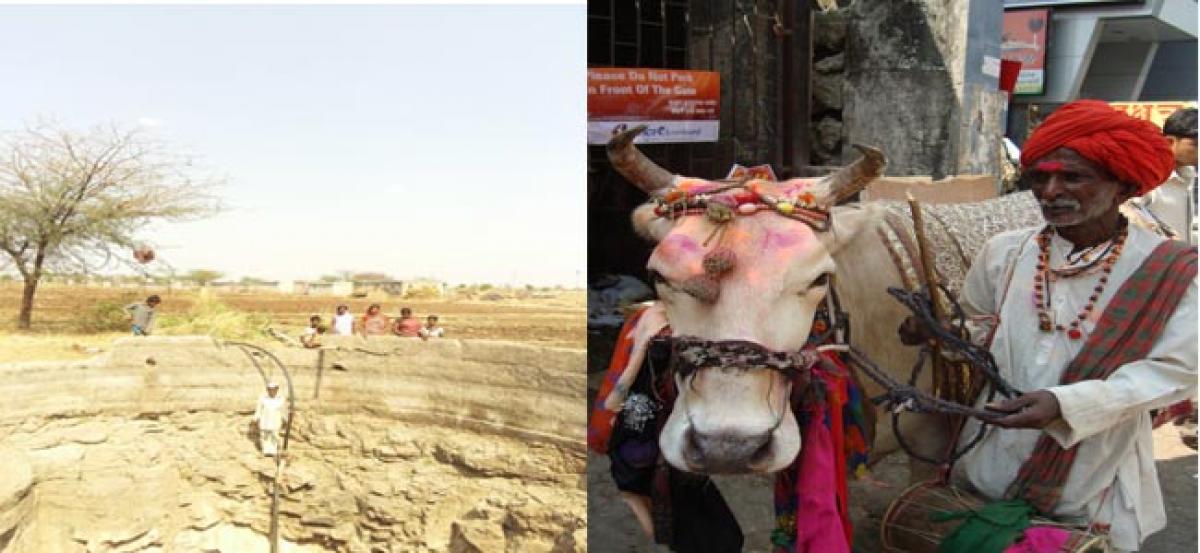
After 25 years long struggle for a single address Tirmali Nomadic Tribe got their own village in Beed District of Maharashtra. They are not to bound for wonder with Nandi Ox to gain two times meal. Now they farming, Since couple of years their children going to school and happening everything normal like us. “Earlier our life was not more than a drama. For earning we had to entertain people with
After 25 years long struggle for a single address Tirmali Nomadic Tribe got their own village in Beed District of Maharashtra. They are not to bound for wonder with Nandi Ox to gain two times meal. Now they farming, Since couple of years their children going to school and happening everything normal like us. “Earlier our life was not more than a drama. For earning we had to entertain people with our Nandi (an Ox which is considered as a carrier of Lord Shiva) moving from village to village, city to city.
We never owned a home or land. Our kids never got education as we did not have a place to stay. Fading up from wondering, 25 years ago we stopped on this barren land and decided to start farming. But we have no background of farming regularly, that is why, we the people have decided to learn it. One day some of us preyed to the nearly dalit villagers to teach us about farming. The dalit people of nearly village's were very modest, ready to teach us and a mission of our life started with agro tools and techniques.
It was endeavor, that we have got lean early. Our whole community including women and men did day night on the barren land to convert it in to green land. People of us became now skilled and fine tunes with farming and a civil village cult.” A Tirmali Nandiwale Tribe Bhura Gayakwad reveals his success story before us. Almost 300 Tirmali Nandiwale live in Kanadi Budruk village in Aasti Block in Beed District. It is about 110 kilometer from Beed City. Earlier the Tirmali Nandiwale Tribe was identified as a nomadic group which wondered from place to place. Dancing and singing along with their Nandi Ox.
They moved to village and metros like Mumbai, Pune as well. The Tribe had no civil identity as ancestral home or postal address, that is why the people of Tirmali Nandiwale Tribe had never been record in the election commission. They could not caste their vote as before the establishment of village. Tirmali Nandiwale Tribe are included in caste system of Maharashtra. Some of them also called as a '12 Balutedar' (main profession based casts i.e. Professions performed by generation by family members)& 18 'Aalutedar' (System is a servant systems in Maharashtra, India's villages which occurs some castes who used to work for the farmers in their surroundings). Tirmali Nandiwale are one of the 18 Aalutedar. Aalutedar's work in village system was a to entertain established upper caste people by different ways of cultural art. And this is the reason that they were deprived of the rights of a citizen of the country.
And this is the reason that State Government of Maharashtra never had an idea of population of Tirmali Nandiwale people too. But now people get surprised after seeing hundreds of Tirmali's residing in the Kanadi Budruk village. Being a witness of the struggle of Tirmali, Advocate Satish says, "Its a great matter that after living in a typical ways for generations, the tribes changed their life style. After 25 years of struggle they have 150 acre of community farms. Now they get regular supply of drinking water, electricity and basic facilities by Maharashtra Government. The most important thing is that many kids from this community goes to school and colleges and making themselves Independent.”
Social activist & Human Rights Champion Advocate Walmiki Nikalje alias Tatya says, “as per the Maharashtra Land Revenue Code & Government Resolution (GR) passed Government of Maharashtra time to time since 1964 to 2011 for regularisation of encroachments of landless SC, ST, NT, DNT on Government Grazing (Gayran) land who has been farming on the Grazing land more than 25 years, they would becomes its owner that land. Tirmali Nandiwale Tribe is on the Grazing land before 1991, but the land rights were not transferred. Now the time is to fight for their land rights.” Walmik Nikalje further says, “Now Tirmali Nandiwale Tribe come out from the begging and wonder for life. They feel now closeness with us.”
Even many of Tirmali Nandiwale Tribe youth completed graduation, like Rama Babu become graduate and his relative graduate Ramesh selected for Special Security Force and now he transferred to Police Department of Beed District. There is very significantly discussed about some Tirmali Nandiwale people of Kanadi Budruk Saheba Bajirao, Yallappa, Rama and Appa, they emerges as social activist. An young lady Saheba Bajirao says, “we are now literate, self reclined and organized.” She further says, “we contribute and participate in Gram-Panchayat elections now and its very proud for us.”
There is a lot of information about the Tirmali Nandiwale community in the book, “The People of India: Maharashtra, Part-3”, edited by BV Bhanu & published by Population Prakashan, Mumbai. It is written in this book that, “there are a few sub groups of Nandiwale, like Fulmali Nandiwale, Devwale Nandiwale and Tirmali Nandiwale. They consist of four sections Patil, Chougule, Komti and Doundiwale. Both these groups of Nandiwale migrated from Andhra Pradesh. The Trimal Nandiwale appear to have migrated some 800 years back and the Fulmali Nandiwale some 250 years ago.
The Nandi is trained to perform tricks. The Nandiwale are moved from Ahmad-Nagar, Pune, Sangli, Satara, Kolhapur, Aurangabad, Jalgaon and Beed District of Maharashtra. The womenfolk of these people sell trinkets and indigenous medicines.
The male dress of the Man is typical, the Nandiwale with them, wear a headgear, shirt, dhoti and tika (horizontal mark of kumkum on the forehead). This tika is symbol of Lord Shiva. Women wear the lungi (village sarees) and choli (bodice). They don't have many literate people. There are no businessmen, scholars or politicians in the community except a few service men in the lower cadres.”
Whether the Kanadi Budruk village is invisible for the map of India, but it has its own success story of change is very important due to very big struggle & large attempts by advocate Walmik Nikalje and all workers of RSGVP-Rajarshi Shahu Gramin Vikas Prakalp, Beed of Maharashtra. Tirmali Nandiwale's life never seems to have shine when they wonder for life with a god statue on Ox back (As par Hindu myth, an Ox the Nandi which is holy animal) but it was not so financially colored.
By Shirish Khare








